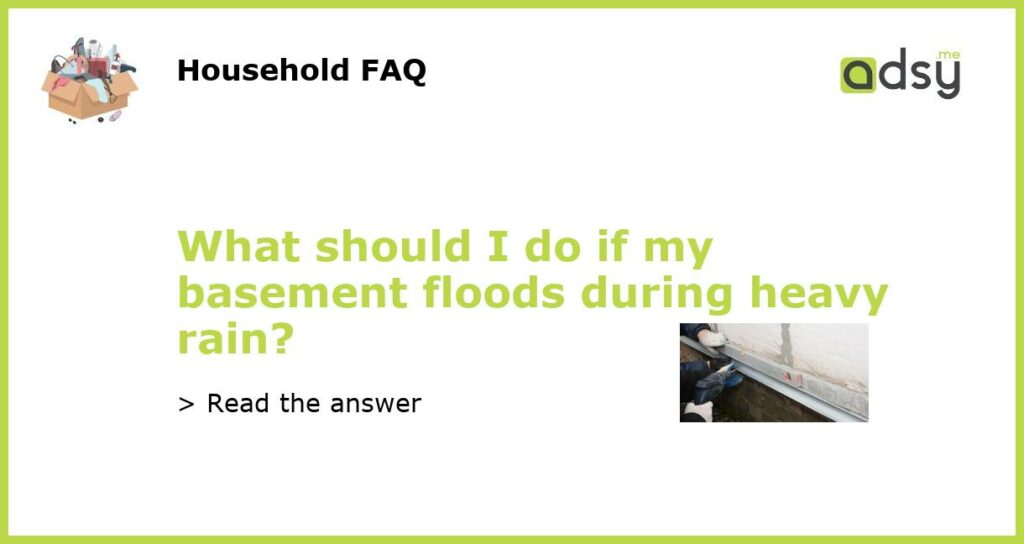Stay Calm and Assess the Situation
Experiencing a flooded basement can be distressing, but it’s important to stay calm and assess the situation. Before taking any action, prioritize your safety and ensure that there are no immediate risks such as electrical hazards or structural damage.
Identify the Source of the Flooding
The next step is to identify the source of the flooding. This will help you determine the appropriate course of action. Common causes of basement flooding during heavy rain include clogged gutters and downspouts, foundation cracks, sump pump failure, or poor drainage systems.
Remove Standing Water
To minimize damage and prevent mold growth, it’s essential to remove standing water from your basement as soon as possible. Depending on the severity of the flooding, you can use a wet/dry vacuum, a submersible pump, or even buckets and mops to get rid of the water. Ensure that you wear protective gear such as rubber boots and gloves to avoid direct contact with the water.
Dry and Dehumidify the Area
After removing the standing water, it’s crucial to dry and dehumidify the affected area to prevent further damage. Open windows and doors to improve air circulation, use fans to enhance drying, and consider renting industrial-grade dehumidifiers to extract excess moisture from the air. Additionally, remove any wet carpets, furniture, or other items that may retain moisture.
Take Steps to Prevent Future Flooding
Once you have addressed the immediate aftermath of the basement flooding, it’s important to take preventive measures to avoid future incidents. Here are some steps you can take:
- Clear gutters and downspouts: Regularly clean and maintain your gutters and downspouts to ensure proper water drainage away from your home. Leaf guards can also be installed to prevent debris accumulation.
- Check your sump pump: If you have a sump pump installed in your basement, test it regularly to ensure it is functioning properly. Consider installing a backup battery power source to keep the pump operational during power outages.
- Seal foundation cracks: Inspect your basement walls and foundation for any cracks or gaps. Seal them using epoxy or concrete sealant to prevent water from seeping in during heavy rain.
- Grade your yard: Ensure that the ground surrounding your home slopes away from the foundation, directing water away from your basement. If necessary, re-grade the landscape or install a French drain system to improve drainage.
- Install a basement waterproofing system: Consider investing in a basement waterproofing system, such as interior and exterior drainage systems, waterproof coatings, or a basement sealant. Consulting with a professional can help you determine the most suitable option for your specific needs.

